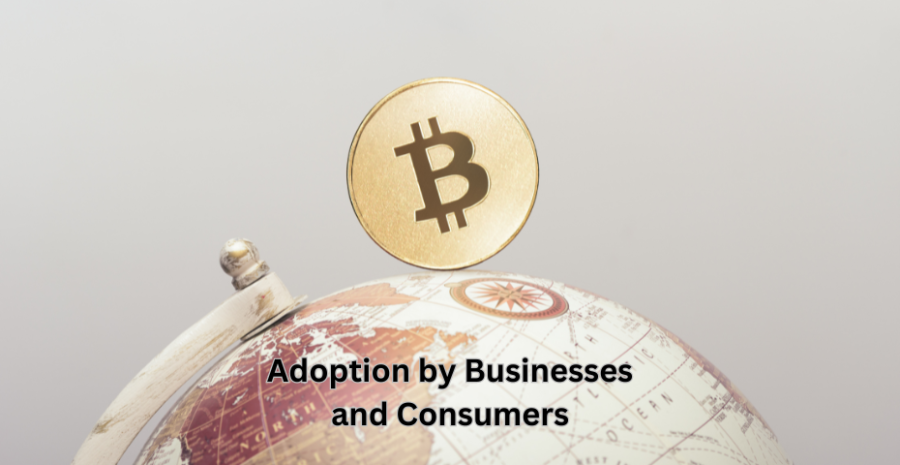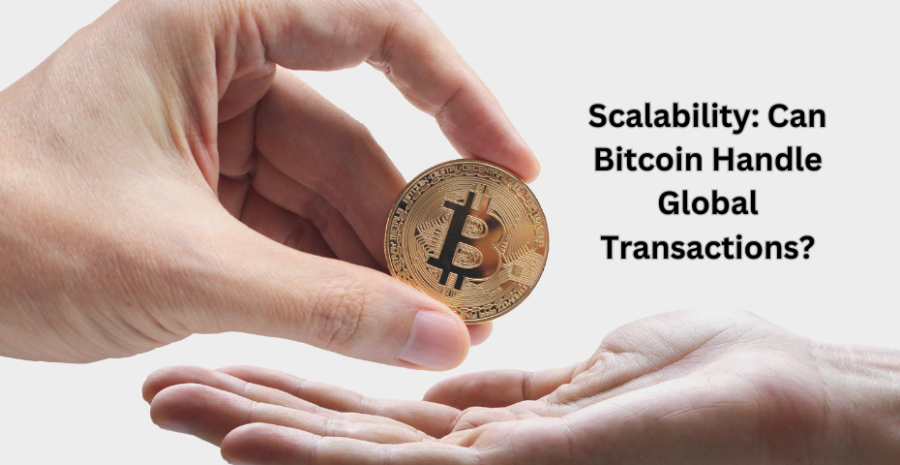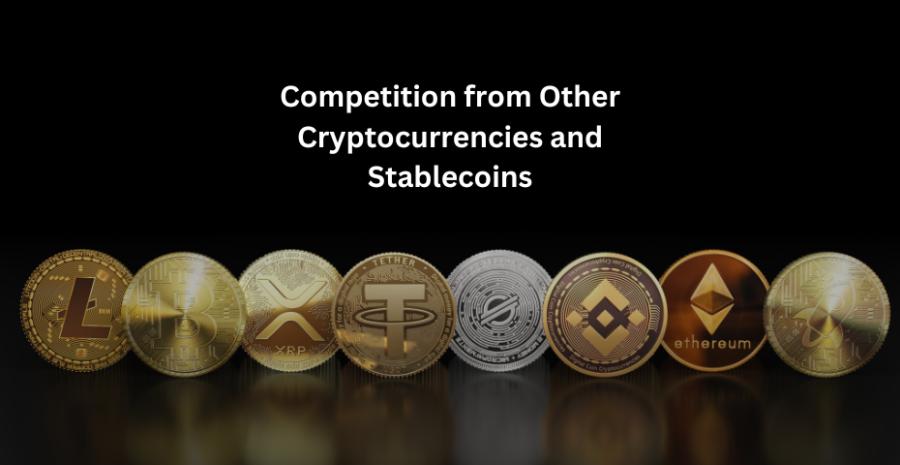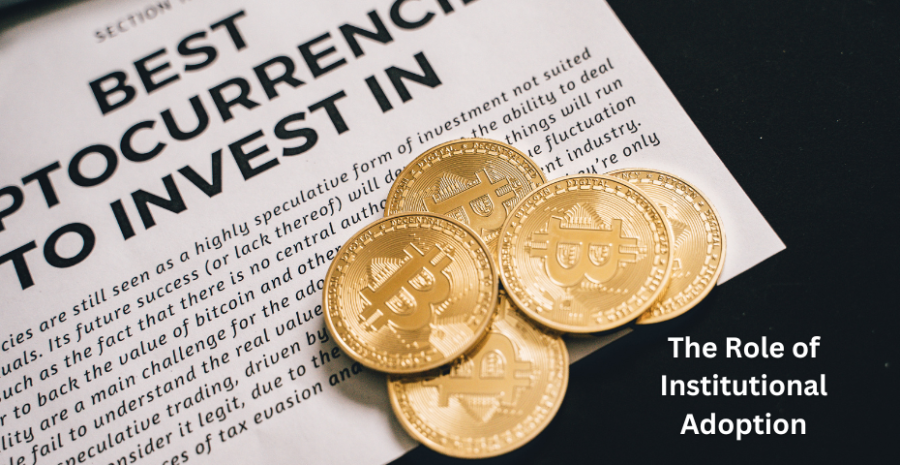
Bitcoin as a Global Currency: Possibility or Pipe Dream?

The rise of Bitcoin has sparked countless debates about its potential to become a global currency. Since its inception in 2009, Bitcoin has evolved from a niche digital asset into a significant player in the financial world, drawing attention from investors, regulators, and governments alike.
Its decentralized nature, limited supply, and technological underpinnings have led many to view it as a revolutionary alternative to traditional currencies.
However, despite its growing popularity, the question remains: Can Bitcoin ever truly become a global currency? To answer this, we must explore the various factors that could either propel Bitcoin to global currency status or hinder its adoption on a worldwide scale.
This blog delves into ten key aspects that will determine whether Bitcoin's future as a global currency is a possibility or merely a pipe dream.
.png)
One of the strongest arguments in favor of Bitcoin becoming a global currency is its decentralized nature. Unlike traditional currencies, which are controlled by central banks and governments, Bitcoin operates on a decentralized network, meaning no single entity has control over it.
This decentralization makes Bitcoin resistant to censorship, government interference, and inflationary practices, which are often associated with fiat currencies. For Bitcoin to become a global currency, its decentralized structure would need to be maintained and trusted by users worldwide.
However, this same decentralization poses challenges, such as the lack of a central authority to manage and stabilize the currency, potentially leading to volatility and making it less appealing for everyday transactions.
As Bitcoin's network grows, its decentralized nature could either solidify its status as a global currency or remain a barrier to widespread adoption.
.png)
Bitcoin's volatility is one of the most significant challenges to its adoption as a global currency. The value of Bitcoin can fluctuate dramatically within short periods, driven by market speculation, regulatory news, and macroeconomic events.
For a currency to function effectively on a global scale, it needs to maintain a stable value to facilitate trade, investment, and savings. The unpredictable nature of Bitcoin's price makes it a risky medium of exchange and store of value, deterring businesses and consumers from using it in everyday transactions.
While some proponents argue that increased adoption and liquidity could eventually stabilize Bitcoin's price, others believe that its inherent volatility may prevent it from ever achieving global currency status.
Addressing this issue is crucial if Bitcoin is to transition from a speculative asset to a stable global currency.

Widespread adoption by businesses and consumers is essential for Bitcoin to become a global currency. While Bitcoin has seen growing acceptance in certain industries and regions, its usage as a means of payment is still limited compared to traditional currencies.
For Bitcoin to achieve global currency status, it must be widely accepted by merchants, businesses, and consumers for everyday transactions. This requires not only technological advancements to make Bitcoin transactions faster and more efficient but also increased awareness and trust among the general public.
Furthermore, businesses must be willing to accept Bitcoin without concerns about its volatility or regulatory uncertainties. Until Bitcoin reaches a critical mass of adoption, its potential as a global currency will remain speculative.

Regulation plays a critical role in determining whether Bitcoin can become a global currency. Governments around the world have taken varying approaches to Bitcoin, ranging from outright bans to full acceptance and integration into the financial system.
For Bitcoin to achieve global currency status, it needs to be recognized and regulated in a way that fosters trust and stability while preserving its decentralized nature. However, achieving global regulatory consensus is a complex challenge, as different countries have different economic interests, legal frameworks, and attitudes towards digital currencies.
Some governments may resist the adoption of Bitcoin as a global currency due to concerns about losing control over monetary policy, tax evasion, or facilitating illegal activities. The path to regulatory acceptance is fraught with challenges, but without it, Bitcoin's potential to become a global currency remains uncertain.

Scalability is another critical factor in Bitcoin's potential to become a global currency. The Bitcoin network currently handles a limited number of transactions per second, which is insufficient for supporting the volume of transactions required for a global currency.
As Bitcoin's popularity grows, the network faces challenges related to transaction speed, fees, and energy consumption.
Solutions like the Lightning Network, which operates as a second-layer protocol on top of Bitcoin, aim to address scalability issues by enabling faster and cheaper transactions.
However, these solutions are still in the early stages of adoption and face technical and usability challenges. For Bitcoin to function as a global currency, it must overcome these scalability issues to provide a seamless and efficient payment system capable of handling the demands of a global economy.

Bitcoin is often compared to gold as a store of value, but its role as a medium of exchange is still debated. A global currency needs to effectively serve both purposes.
While Bitcoin's limited supply and deflationary nature make it an attractive store of value, its volatility and transaction limitations hinder its use as a medium of exchange. Many Bitcoin holders treat it as a long-term investment rather than spending it on goods and services, which could limit its utility as a currency.
For Bitcoin to become a global currency, it must strike a balance between being a reliable store of value and a practical medium of exchange.
Achieving this balance will require innovations in payment infrastructure, increased merchant adoption, and a shift in user behavior towards using Bitcoin for everyday transactions.

Bitcoin is not the only digital currency vying for global currency status. Other cryptocurrencies, such as Ethereum, Ripple, and stablecoins like Tether, present competition and alternatives to Bitcoin.
Stablecoins, which are pegged to traditional currencies like the US dollar, offer the stability that Bitcoin lacks, making them more attractive for everyday transactions. Additionally, central bank digital currencies (CBDCs) are being developed by governments as digital counterparts to fiat currencies, potentially reducing the need for Bitcoin as a global currency.
The competition from these alternatives could limit Bitcoin's adoption and acceptance on a global scale. For Bitcoin to stand out, it must continue to innovate, address its weaknesses, and demonstrate clear advantages over other digital currencies in terms of security, decentralization, and utility.

Public perception and trust are crucial for Bitcoin's potential to become a global currency. Despite its growing popularity, Bitcoin is still often associated with speculative investments, illegal activities, and high-risk trading.
For Bitcoin to be widely accepted as a global currency, it must overcome these negative perceptions and build trust among the general public. This requires education, transparency, and efforts to combat misinformation about Bitcoin and the broader cryptocurrency space.
As more reputable institutions, businesses, and governments engage with Bitcoin, public confidence may increase, paving the way for broader acceptance.
However, building trust is a gradual process, and any major security breaches, fraud, or regulatory crackdowns could set back Bitcoin's progress towards becoming a global currency.

The technological foundation of Bitcoin is a key factor in its potential to become a global currency. Bitcoin's underlying blockchain technology offers security, transparency, and immutability, which are essential qualities for a global currency.
However, as with any technology, Bitcoin must continue to evolve to address emerging threats and challenges. Cybersecurity, in particular, is a significant concern, as the increasing value and adoption of Bitcoin make it a prime target for hackers and cybercriminals.
Ensuring the security and integrity of the Bitcoin network is paramount for maintaining user trust and confidence. Additionally, ongoing advancements in blockchain technology could enhance Bitcoin's scalability, speed, and efficiency, making it more viable as a global currency.
The future of Bitcoin as a global currency will depend on its ability to adapt and improve in response to technological developments and security challenges.

Institutional adoption of Bitcoin is a critical factor in its journey towards becoming a global currency. In recent years, we have seen increasing interest from institutional investors, companies, and financial institutions in Bitcoin as an asset class.
Large corporations like Tesla and MicroStrategy have invested heavily in Bitcoin, and major financial institutions are offering Bitcoin-related services to their clients. This growing institutional involvement brings legitimacy and stability to Bitcoin, which could pave the way for broader adoption as a global currency.
However, institutional adoption is a double-edged sword; while it can boost Bitcoin's credibility, it could also lead to centralization and influence from traditional financial systems, potentially undermining Bitcoin's decentralized ethos.
Balancing institutional involvement with the need to maintain Bitcoin's core principles will be crucial for its evolution into a global currency.
The question of whether Bitcoin will ever become a global currency is complex and multifaceted. As explored in this blog, numerous factors will influence Bitcoin's journey towards global currency status, including its decentralized nature, volatility, regulatory challenges, scalability, competition from other digital currencies, and public perception.
While Bitcoin has made significant strides since its inception, it still faces substantial hurdles that must be overcome for it to be widely accepted as a global currency.
Whether Bitcoin's future as a global currency is a possibility or a pipe dream ultimately depends on its ability to adapt, innovate, and address these challenges. As the world continues to evolve, so too will the role of Bitcoin in the global economy.
While the outcome is uncertain, one thing is clear: Bitcoin has already reshaped the financial landscape, and its impact will continue to be felt for years to come.
Whether it becomes a global currency or remains a valuable digital asset, Bitcoin's journey is far from over, and its potential is still unfolding.
(16).png)
About: Andries vanTonder (65)
45 years selfemployed
He is a Serial Entrepreneur, an Enthusiastic supporter of Blockchain Technology and a Cryptocurrency Investor
Find me: Markethive Profile Page | My Twitter Account | My Instagram Acount | and my Facebook Profile.
